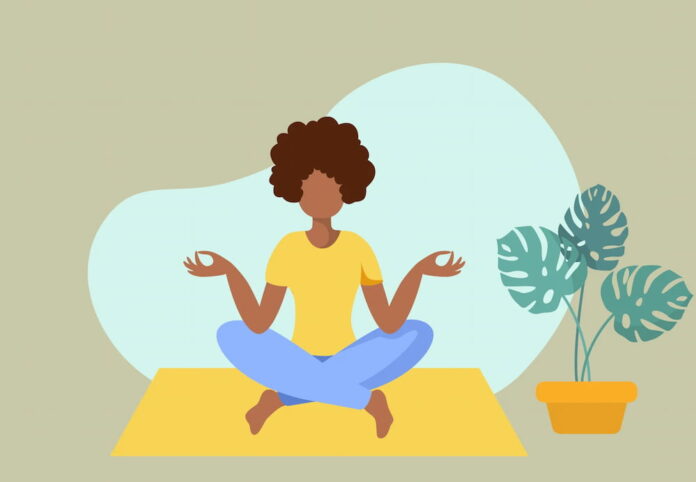It’s an unfortunate fact that the pace and complexity of modern life can be a key driver in developing stress. Americans are particularly susceptible to suffering from stress. Recent statistics indicate that approximately 55% of American adults feel stressed at some point during the day. A common reason for this is linked to the pressures of cultivating and maintaining a professional career and dealing with conflicting objectives during the working day.
Whilst experiencing feelings of stress on an occasional basis is normal, being under stress for prolonged periods can damage the body and can increase the risk of suffering from chronic health conditions in later life. Adrenaline and cortisol are released into the bloodstream when the body’s “fight or flight” mechanisms react to perceived stressors and challenging situations. The blood pressure is elevated, and changes take place in the digestive and immune systems.
Extended periods of stress can dramatically increase the likelihood of experiencing depression, anxiety, weight gain, and cardiovascular problems such as strokes and heart disease. Thankfully, stress can be effectively managed and minimized with a range of non-invasive techniques. In this article, two such treatments will be discussed.
1. Practice mindfulness
The art of mindfulness has grown in popularity in the last decade, and it’s now estimated that around two million Americans practice some form of mindfulness. Put simply, mindfulness is a technique where people focus on the present moment and train themselves to eradicate other subconscious thoughts or concerns that can detract from this form of meditation. A session of mindfulness can only take around ten minutes to accomplish and regular practice can improve the impact and efficiency of the technique.
Research indicates that practicing mindfulness can be a key way to improve mental well-being and reduce stress. A meta-analysis combined 209 individual studies into mindfulness and concluded that mindfulness-based therapies are effective in treating a range of psychological problems whilst being an exceptionally beneficial method of reducing stress levels.
2. Consider massage treatments
When the body experiences stress over a protracted period, it can result in muscle pains. This is because the chemicals released during stressful situations, such as adrenaline, cause the body’s blood vessels to constrict. This leads them to deliver lower volumes of blood to muscles which can lead to tension and aches developing. In some cases, stress has been linked to the development of fibromyalgia in some patients.
Thankfully, the muscular effects of stress can be alleviated by visiting a professional massage treatment centre, such as those that can be found at https://melbournemassageandtreatment.au/. Well-run massage centres will have highly trained staff who can locate the source of muscular pain, aches and discomfort before focusing the treatments in these areas.
Massage has been demonstrated to improve blood flow in areas that are affected by stress as well as improving the circulation of lymph flow. In short, effective massage treatments can provide relief from the musculoskeletal effects of prolonged periods of stress.
However, it’s important to note that the underlying causes of stress should be investigated so the root cause can be ascertained and remedial measures can be taken to prevent reoccurrences.
Read Also
- The Role of Ingredients in Your Skincare: What to Look ForSkincare works best when you understand what goes into the products you use daily. Ingredients form the foundation of every formula and determine how the skin reacts over time. Each cream, cleanser, or serum has its own role, determined by its ingredients. Learning what to look for helps you pick products that help skin and… Read more: The Role of Ingredients in Your Skincare: What to Look For
- Your Guide to Finding a Trusted DentistChoosing the right dentist in Sandgate or your area is crucial for maintaining good oral health and achieving a confident smile. With countless dental practices to choose from, patients may find the task daunting. Data from the American Dental Association indicates that there are over 200,000 practicing dentists in the United States, highlighting the importance… Read more: Your Guide to Finding a Trusted Dentist
- Achieving a Defined, Balanced Facial Contour in SingaporeA well-defined jawline and a gently tapered lower face — commonly referred to as a V-shaped face — is a look many people aspire to. In Singapore’s beauty and aesthetic scene, treatments that help refine facial contours have grown in popularity as more individuals seek subtle, natural enhancements that boost confidence and balance facial features.… Read more: Achieving a Defined, Balanced Facial Contour in Singapore
- The Wellness Blueprint: How Your DNA Holds the AnswerGenetic testing is revolutionizing preventive healthcare by offering insights into individual health risks. By analyzing DNA, these tests provide a personalized health blueprint that can guide lifestyle and medical decisions. This approach, often referred to as DNA wellness testing, helps to optimize health naturally and prevent potential diseases. In recent years, genetic testing has become… Read more: The Wellness Blueprint: How Your DNA Holds the Answer
- Exploring the Benefits of Infusion Therapy in OKC: The Ultimate GuideUnderstanding Infusion Therapy: A Deep Dive into Its Purpose and Process What exactly is Infusion Therapy? Infusion therapy is an advanced medical treatment that delivers medication and nutrients directly into the bloodstream through a vein, typically via an IV (intravenous) line. This method is particularly beneficial for patients who require a concentrated dose of medication,… Read more: Exploring the Benefits of Infusion Therapy in OKC: The Ultimate Guide






